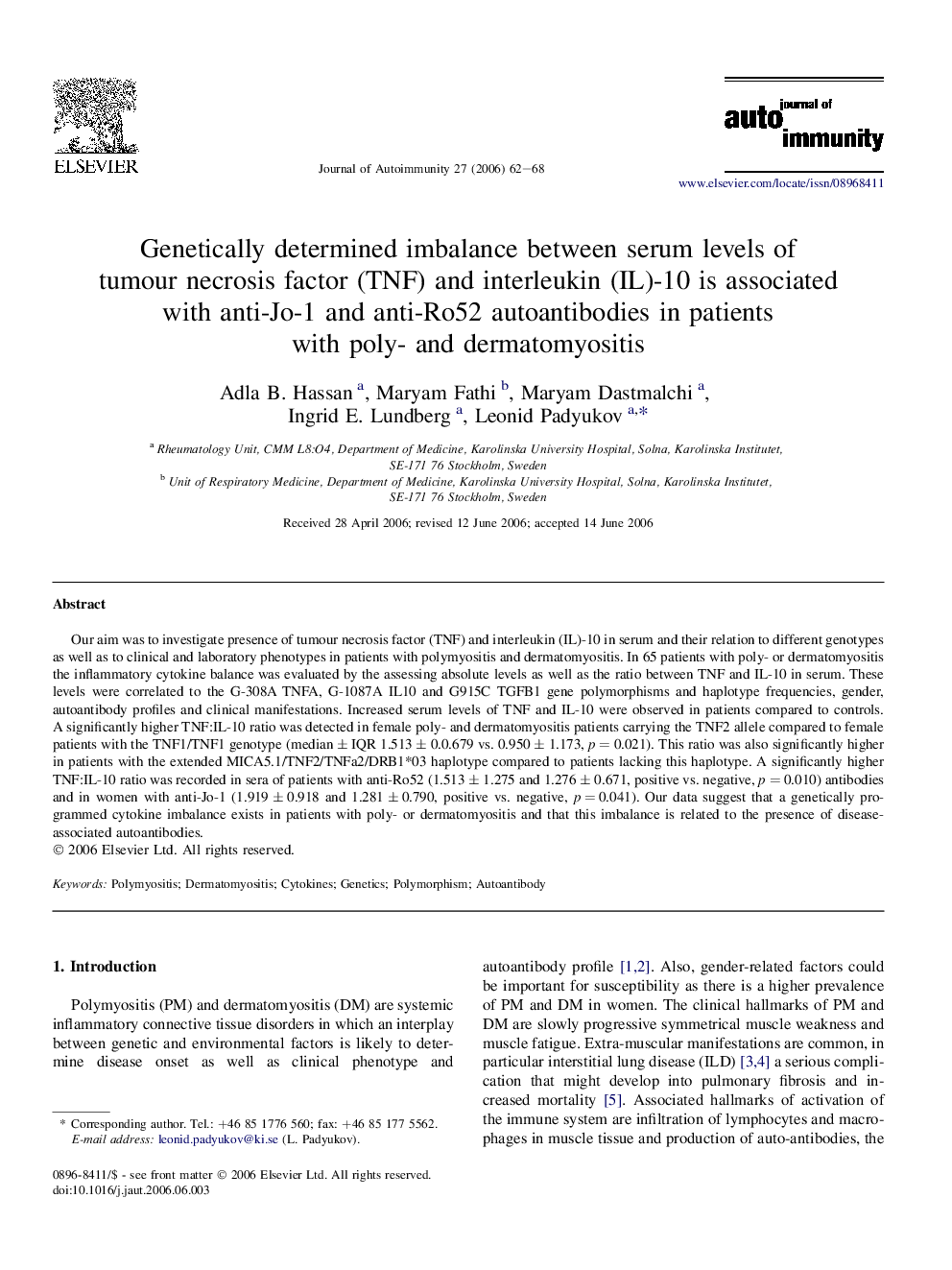| Article ID | Journal | Published Year | Pages | File Type |
|---|---|---|---|---|
| 3368524 | Journal of Autoimmunity | 2006 | 7 Pages |
Our aim was to investigate presence of tumour necrosis factor (TNF) and interleukin (IL)-10 in serum and their relation to different genotypes as well as to clinical and laboratory phenotypes in patients with polymyositis and dermatomyositis. In 65 patients with poly- or dermatomyositis the inflammatory cytokine balance was evaluated by the assessing absolute levels as well as the ratio between TNF and IL-10 in serum. These levels were correlated to the G-308A TNFA, G-1087A IL10 and G915C TGFB1 gene polymorphisms and haplotype frequencies, gender, autoantibody profiles and clinical manifestations. Increased serum levels of TNF and IL-10 were observed in patients compared to controls. A significantly higher TNF:IL-10 ratio was detected in female poly- and dermatomyositis patients carrying the TNF2 allele compared to female patients with the TNF1/TNF1 genotype (median ± IQR 1.513 ± 0.0.679 vs. 0.950 ± 1.173, p = 0.021). This ratio was also significantly higher in patients with the extended MICA5.1/TNF2/TNFa2/DRB1*03 haplotype compared to patients lacking this haplotype. A significantly higher TNF:IL-10 ratio was recorded in sera of patients with anti-Ro52 (1.513 ± 1.275 and 1.276 ± 0.671, positive vs. negative, p = 0.010) antibodies and in women with anti-Jo-1 (1.919 ± 0.918 and 1.281 ± 0.790, positive vs. negative, p = 0.041). Our data suggest that a genetically programmed cytokine imbalance exists in patients with poly- or dermatomyositis and that this imbalance is related to the presence of disease-associated autoantibodies.
